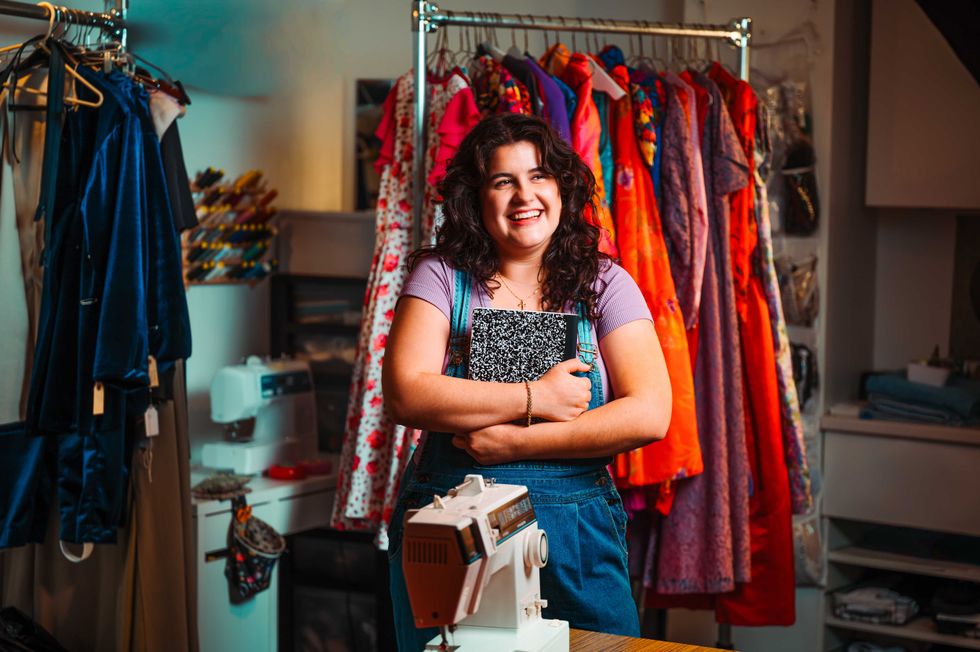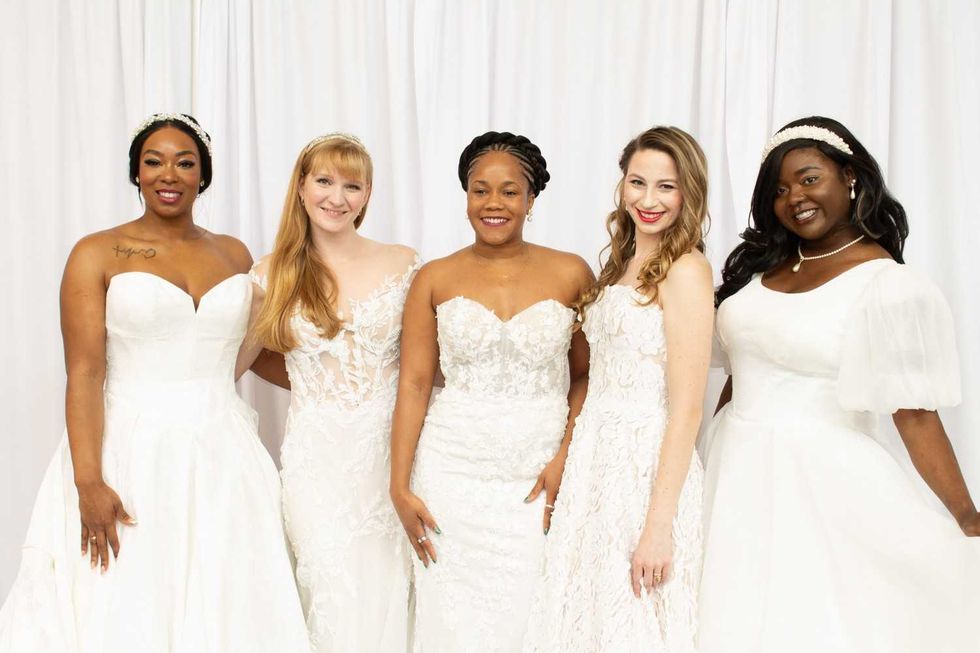There are a lot of lovely events that you can check out this weekend, from a chef-driven dining event to a two-day wellness weekend to an art gallery’s 35th anniversary show to the start of an annual, Iranian film festival.
The question is, will that arctic blast that’s supposed to happen keep people leaving their houses? Here’s hoping things aren’t cold enough to keep Houstonians from having a good time.
Photo courtesy of Phil Rosenthal/ Facebook
Thursday, January 22
Lucille’s Hospitality Group presents The LHG Experience Dinner
This one-night, chef-driven dining event offers a five-course tasting menu with curated wine pairings that highlights the collective creativity behind Lucille’s Hospitality Group. The evening brings together chefs Chris Williams (Lucille’s), Sergio Hidalgo (Late August), and Jaden Gaines (Rado Market) for a collaborative menu that weaves together flavors, techniques, and cultural influences from each concept. 7 pm.
Improv Houston presents Timmy No Brakes
If there is one reason to watch/listen to that insufferable Kill Tony podcast/comedy show, it’s Timmy No Brakes. This guy is comedy’s most unhinged rising star (think Andrew Dice Clay if his toxic-masculinity shtick was actually self-parody). A Kill Tony viral menace and Golden Ticket winner, Timmy’s live shows are a collision of heterosexual character work, high-octane rants, and pure, uncut stupidity delivered with deranged confidence. 7:30 pm.
Performing Arts Houston presents Chris Thile
Four-time Grammy-winning mandolinist and songwriter Chris Thile has released eight albums in his career, most recently Laysongs in 2021. A founding member of the bands Punch Brothers and Nickel Creek, he’s also collaborated with artists ranging from Yo-Yo Ma to Fiona Apple to Brad Mehldau. For four years, he also hosted public radio favorite Live from Here with Chris Thile (formerly known as A Prairie Home Companion). This weekend, he’ll be in town sharing music from his career. 7:30 pm.
Friday, January 23
Sandbox VR Grand Opening
Sandbox VR, the world's premier venue for virtual reality experiences, is set to open its newest location in Houston’s lively CityCentre district. Customers can choose from 10 different VR experiences, including the new Stranger Things experience, created in partnership with Netflix. Stranger Things: Catalyst allows fans to step inside the global phenomenon in an all-new immersive chapter that puts them at the heart of Hawkins’ darkest secrets. 10 am.
Public Art of the University of Houston System presents Collage for a Cause
Public Art of the University of Houston System, in partnership with Art for All Homes, will present Collage for a Cause, an evening of artmaking and giving back. Attendees can enjoy refreshments and create their very own collage based on a work in the Public Art collection. The collages will go to a meaningful cause, Art for All Homes, a nonprofit organization that collects donated artwork to distribute to individuals and families to create beauty in their homes. 5:30 pm.
Houston Symphony presents "Marin Alsop Conducts Brahms 2"
Conducting legend Marin Alsop unlocks the luminous jewel case that is Brahms’s Symphony No. 2. Overflowing with gorgeous melodies that melt the heart, it ends with a triumphant burst of pure joy. Love is the unifying thread in Bernstein’s Serenade (After Plato’s “Symposium”), performed with virtuosity by Concertmaster Yoonshin Song. An all-American first half opens with Barber’s heartfelt Second Essay for Orchestra. 7:30 pm (2 pm Sunday).
Alley Theatre presents Real Women Have Curves
Real Women Have Curves, a vivacious comedy which inspired the hit 2002 film starring a pre-Ugly Betty America Ferrera, follows five Latina women navigating the pressures of body image, immigration, and cultural expectations. As they work to meet an impossible deadline, the women reveal their hopes and struggles. Audiences can experience the warmth and laughter in the beauty of embracing who you are. Through Sunday, February 15. 8 pm (2 and 7 pm Sunday).
Saturday, January 24
Hotel Lucine presents Wellness Weekend
Galveston’s beachside retreat Hotel Lucine is bringing a fresh dose of wellness-focused hospitality to the Gulf Coast with a rejuvenating weekend that invites both locals and hotel guests to unwind, recharge, and reconnect. Over two days, the boutique hotel will offer a series of seven curated sessions featuring yoga, pilates, breathwork, palm readings, and sound baths. With five sessions offered on the first day and two on the second, guests can dive into a single class or enjoy the entire lineup. 10 am.
The Bridal Extravaganza Show
Since 1983, the Bridal Extravaganza Show has been bringing brides and bridal businesses together. Catering exclusively to brides, grooms, and their families, the two-day festivities (held at downtown's George R. Brown Convention Center) is a one-stop-shop bringing Houston’s wedding vendors together in one location. Taste cakes, eat food, drink cocktails, shake hands with your photographer, DJ, and caterer. Plus, it’s a great way to find those unique details that steal the show at a reception. 11 am.
Gallery Sonja Roesch presents 35th Anniversary Show
Gallery Sonja Roesch will have a special show celebrating its 35th anniversary, showcasing works from various contemporary reductive and concept-based artists. The exhibition highlights the gallery's enduring vision and commitment to showcasing minimalist aesthetics since it was founded in Germany in 1991 and subsequently relocated to Houston in 1996. The show will feature a curated selection of artists whose work embodies the minimalist aesthetic the gallery has championed for over three decades. 6 pm.
An Evening with Phil Rosenthal of Somebody Feed Phil
Phil Rosenthal is the creator and executive producer of Netflix’s Somebody Feed Phil and the Emmy-winning Everybody Loves Raymond, as well as a New York Times bestselling author. Rosenthal will be in a moderated conversation, telling all the funny and true stories of his life, his television career, food, travel, friends, and family. The conversation will be followed by an audience Q&A. 7 pm.
Sunday, January 25
Nan and Company Properties presents Mats & Micheladas
Wellness/lifestyle event Mats & Micheladas features a free pilates class led by Gustavo Matta, head coach at the Core Lab (participants should bring their own mats), along with complimentary micheladas for the first 25 attendees from Micheladas El Güero. Treats will also be available for purchase from Strawberry King. The event is open to the public and designed to create a welcoming, community-focused experience — especially for first-time homebuyers and the Latino community, though all are encouraged to attend. 10 am.
Color Factory presents “New Year, New Hue” Night
Interactive art experience Color Factory invites visitors to experience the joy of color, welcomes Houstonians to start off the new year with new energy and a fresh new hue. The location will feature a live aura reader immersed in the Factory’s colorful installations. Along with the Color Factory experience, attendees will receive complimentary aura photography to help them discover the unique energy they’re bringing into 2026. 4 pm.
The Museum of Fine Arts, Houston presents It Was Just an Accident
The 33rd annual Festival of Films from Iran kicks off with the latest from acclaimed Iranian filmmaker Jafar Panahi (The White Balloon). A mechanic is suddenly reminded of his time in an Iranian prison when he encounters a man he suspects to be his sadistic jailhouse captor. He gathers a few of his fellow ex-prisoners to confirm the man’s identity. Winner of the Palme d’Or at the 2025 Cannes Film Festival. 4 and 7 pm.





